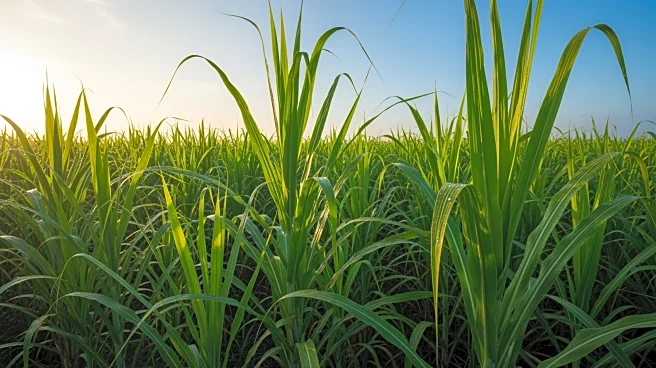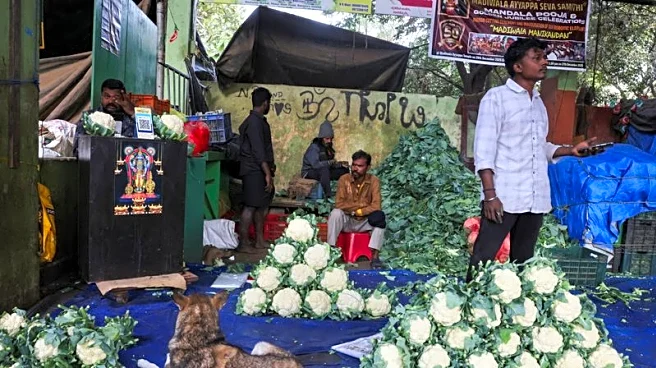What's Happening?
Indonesia has announced a strategic initiative to achieve self-sufficiency in white sugar by 2026, as part of a broader effort to enhance food security and revitalize its sugar industry. Agriculture Minister
Andi Amran Sulaiman outlined the plan, which includes increasing sugarcane productivity and modernizing sugar mills. The initiative aims to restore Indonesia's sugar industry to its former prominence, reminiscent of the 1930s when the country was a leading global sugar exporter. The government has set a target to produce 2.75 million tons of sugar by 2025, supported by investments in plantations and infrastructure. This plan is part of a National Sugar Self-Sufficiency Roadmap, which seeks consumer sugar independence by 2028 and total self-sufficiency by 2030.
Why It's Important?
The move towards self-sufficiency in white sugar is significant for Indonesia's economic independence and food security. By reducing reliance on sugar imports, Indonesia can stabilize its domestic market and protect against global price fluctuations. The initiative also promises to boost the agricultural sector, creating jobs and fostering economic growth. The investment in modernizing sugar mills and expanding plantations is expected to enhance productivity and efficiency, positioning Indonesia as a competitive player in the global sugar market. This development could have ripple effects on related industries, such as bioethanol production, further strengthening Indonesia's economic resilience.
What's Next?
The Indonesian government plans to intensify sugar production by clearing additional land for sugarcane cultivation and introducing improved agricultural practices. The construction and reactivation of sugar factories across Java and other regions are expected to support this expansion. As the initiative progresses, stakeholders, including farmers and industry leaders, will likely play a crucial role in its implementation. The government may also engage in international partnerships to share technology and expertise, ensuring the success of the self-sufficiency plan. Monitoring and evaluation mechanisms will be essential to track progress and address challenges that may arise.
Beyond the Headlines
The push for sugar self-sufficiency reflects broader trends in Indonesia's economic policy, emphasizing sustainability and self-reliance. This initiative could serve as a model for other agricultural sectors, encouraging similar strategies to reduce import dependency. Additionally, the focus on modernizing infrastructure and adopting advanced agricultural techniques may lead to long-term improvements in productivity and environmental sustainability. The cultural significance of reviving the sugar industry to its historical glory days may also foster national pride and support for the government's economic policies.










